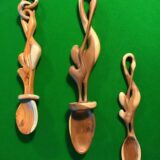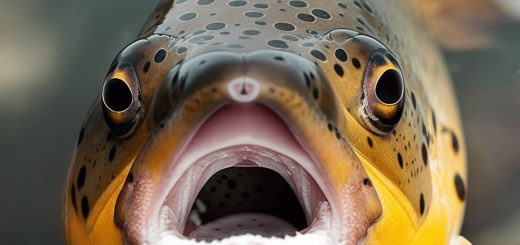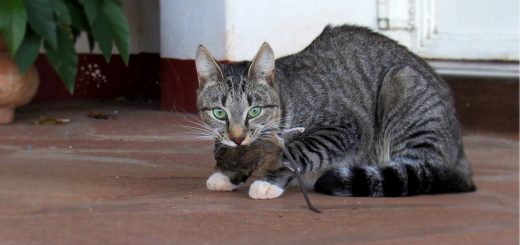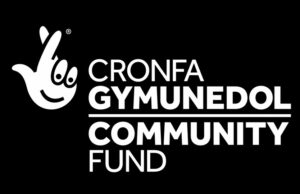Emma’s Story: Epilogue
One of the most popular items we have ever published has been Emma Wishart’s story of her extraordinary life with autism. In one of the early chapters she wrote about lost love and the sadness that had been with her all her life. Well, Emma and her first love have found one another again and here Howard Stephen Watts, Emma’s old love, has added a delightful epilogue to Emma’s story. We wish them both great joy and are delighted that we have been permitted to post this.You can find Emma’s story here. It’s definitely worth reading. Over to Howard and Emma…

EPILOGUE – OR CHAPTER 19A
IMPORTANT UPDATE – AGED 51 (2021)
By Howard Stephen Watts, author of The Master of Clouds
With comments from Emma
Is everyone’s life their own fiction? To direct, playing the leading role, elevated above individuals that come and go throughout their lives in supporting roles? Or are we part of a grand narrative, narrated by a disembodied voice, to which we have no directional input?
The Shakespearean comparison is obvious to the sentence above:
From As You Like It: “All the world’s a stage, and all the men and women merely players: they have their exits and their entrances; and one man in his time plays many parts, his acts being seven ages.”
Perhaps…
However, in the above quote, Shakespeare doesn’t make it clear who the actual director is. While the ‘seven ages’ is open to discussion and/or interpretation on an individual basis, for myself, three has proven to be my life’s illustrative number.
For my small part in Emma’s story, I have concluded that two directors can claim responsibility for my entrance, somewhat swift exit, and my subsequent walk-on parts, until my appearance here when I took up my own directorial duties.
THE DIRECTORS. V1.0.
There have been, and will continue to be, many discussions concerning the invisible, mystical forces known as free will and determinism. Academics, scientists, theologians and philosophers continue to argue the merits of both, with equal passion.
To clarify. Free will is just what it says on the tin – you choose your own path through life (I’m not going to discuss fate and destiny, as those similar cousins serve only to confuse this text, and I have a word count to adhere to).
Your free will dictates your life, and the decisions you make throughout are entirely up to you.
Determinism suggests free will is an illusion, a comforting con, a thoroughly misleading construct, designed to elevate individuals believing in its freedoms above determinism’s ‘set in stone’, strangulating grip on life.
Imagine determinism as a huge book, a script with stage directions – to continue my opening theme – in which every decision taken by everyone is pre-ordained. Imagine them both as a truncated ‘rock paper scissors’ game, where neither triumphs above the other.
My entrance into Emma’s life came by way of determinism.
My social conditioning, the code, the rules, the expectations – all laid out by schools, parents and media. Get a job, save money, get a partner, save money, obtain a mortgage/rent a flat/house, get engaged. Pause for breath. Get married, have children, raise them, work, retire, die. It seemed there was no alternative, no escape plan offered for the free thinker, the creative misfit who didn’t fit in with the ‘normal majority’, deterministic mindset. Yet, being a good lad, (having rebelled a little during the late punk/alternative movements of the late 1970s–early 1980s) I adhered. Social determinism held me by the throat and I accepted its grip, convinced my box-ticking life ahead would be fine…
However, upon our meeting, my deterministic view clearly didn’t meld with Emma’s freewillistic (to invent a word) lifestyle.
There’s a pub pool table in her lounge, bridging the gap between the kitchen and the front room, where once a dividing wall had probably become bored and subsequently been knocked down or crumbled through apathy. This pool table was not a wobbly MDF knock-off, but a coin-operated, slate-bedded freaking pub pool table. Oh, the wonder!
People don’t do that! I thought to myself. They have dining tables of fake oak, with shiny cruet sets at the centre upon an unruly doily or tablecloth.
There’s a synthesiser on the couch. Where’s the cat/dog? Again, people don’t do that. Dotted around the room were guitars resting upon guitar stands – the kind usually found in music shops. Looking back, people should do that, because that’s exercising free will. Her whole house breathed with her free thought, in a relaxed rhythm the neighbouring houses would undoubtedly suffocate from.
I found this all very strange, and dealing with Emma’s astonishing high intelligence and memory, I elevated this sexy, happy-go-lucky free thinker above myself in the social hierarchy, sidelining her as ‘one of them’, a person who lived outside of ‘normality’ and the deterministic rules. I felt as though I’d walked down the street during a typical grey English day, rounding a corner to find triple rainbows arcing across the sky. Unnatural, and certainly unsettling to my instructed views.
My friends raised their eyebrows at my description of her house, my conditioning steering me away to the accepted comfort of a determined future…
Whereas Emma’s autism – her enhanced decision-making processes – sent her off on many a motorcycling adventure… steered her into a future of her own free will…

THE DIRECTORS. V2.0.
Time passed, I continued ticking the boxes. I obeyed. But it seemed my ‘For Life’ companions in this process didn’t quite share, or perhaps accept, the deterministic existence I was expectant of them following and I was so accepting of…
My free will grew, fuelled by my plethora of creative endeavours shouting to be accepted. My concentration upon maintaining the ticked boxes waned as I aged, realising free will’s very existence allowed it to refute determinism, and most pointed for me was my realisation that the opposite could not be true. The rock paper scissors game of two finally had a clear winner, at every count of three.
But then I began to take stock. Perhaps I’d not given this imaginary cosmic game a ‘best of three’ before announcing the winner?
It could very well be that both walked hand in hand – determinism steering us to positions in life, then relinquishing the wheel, allowing our free will to steer us in our own directions as we wound down the window to litter life’s road with determinism’s map?
It was obvious to me.
These had to be the rules of this cosmic game.
Every Shakespearean player had influenced me during my contact with them throughout my life so far, either fleeting or enduring, their presence overpowering and influential – a multitude against me, the one. And now, through circumstances of which I was unaware, my daughter (my eldest of three children, and herself autistic) had met Emma, in an online autism group.
THE DIRECTOR’S CUT. V3.0.
My relationship with my daughter had become somewhat estranged over many years, but an olive branch had been offered by her, happily accepted by myself, and was instantly passed between us. I began to understand.
She had suffered mercilessly at the hands of ‘normal’ individuals, told unfairly and unashamedly that her issues were of her own making. These people, devoid of compassion, fearful of the unknown, of being made aware of an inconvenience ruffling the regimented folds in the fabric of their lives, elevated themselves above her. They occupied their fabricated moral high ground, built hastily upon unsteady footings, amid a monsoon of torrential truth, rationality and empathy. This served to leave them in a pool of mud, consisting of their own self-centred importance and delusions, once the skies cleared to reveal the harsh light of day.
To be judgmental is apparently socially acceptable these days, undoubtedly fuelled by a media empire where it’s a core attribute to judge others – irrespective of one’s qualifications to do so. A common problem facing autistic people, as mentioned by Emma herself, and my daughter, in less flowery terms.
I’ll let Emma explain how we became reconnected…
I had never forgotten him and had occasionally been doing a bit of investigative research (or cyberstalking, as it is sometimes called) in order to keep up with his achievements, to whit, one published novel and one album of really excellent music [Gliese and the Walking Man by Syngenic] that I was aware of. He had also written the music for two plays and written, composed and directed a ballet, all of which achieved a measure of localised success. Latterly, in the course of these investigations, it came to my attention that he was separated again. Due to the circumstances of our last few meetings, I honestly believed that he didn’t like me and would not be interested in talking to me, so I did not make any attempt to reach out to him.
I was spending a lot of time in the Facebook Autistic Community and had noticed that there was someone with exactly the same name as his oldest daughter, middle name included, in one of my Facebook groups. Of course I had a look at her profile and quickly confirmed that she was definitely his daughter by where she lived and, more definitively, by the shape of her face, which was exactly his. Still I did nothing, but followed her posts for a while, discovering that she was highly intelligent and had a wicked and brilliant sense of humour. Still I didn’t wish to make contact as I didn’t know if it would be appropriate.
One day she commented on a post I was following and I couldn’t restrain myself. “I used to know your dad!” I replied to her comment. We had a brief conversation and I sent her the whole of the picture that I have cropped everyone else out of in Chapter 19. For over a year we occasionally talked to each other on Messenger and eventually I told her the whole story as related in this book.
A little while later, my daughter asked me if it would be OK for her to pass on my number to Emma. Determinism had handed me a choice to exercise my free will. The map hit the road to be left far behind.
‘Of course!’ I said, expecting Emma to be married with two children, a cat and/or dog, a mortgage and living in Croydon. We’d have a brief catch-up, ‘Oh they were good times’ and similar misty-eyed platitudes.

But no. She had maintained her free will, steering herself to even greater adventures in life (she jumped out of a plane, twice!) as told in the pages of this book.
For my part, I was beginning to wonder what it was all about, this ‘life’ thing, and why, since I had been a good boy, determinism hadn’t rewarded me with everything my social conditioning had promised.
My continued obsession with creativity had only served to distance me from certain people. But it was within that mindset I felt ultimately comfortable, and to park up and run back down the road to retrieve that map would be a betrayal of myself, having had a fair amount of success from my various creative endeavours.
Emma and I exchanged texts. Then, as both of us are excellent communicators, and unable to address everything we wanted to through thumb and finger fiddly-widdly, I suggested I actually use the thing held in my hands for its original purpose. I pressed the phone icon.
We instantly ignited.
He has made our reconnection sound so simple but, in fact, his daughter offered me his number and I could only giggle nervously. Eventually she just gave it to me. Then I had to decide what to say. I was aware that all my friends had now read Chapter 19 and it was out there in the world to be read. I asked a few friends to read it from his point of view and tell me if it was offensive or would annoy him. I couldn’t get a straight answer on that one because, without fail, all told me to walk away and have nothing to do with him. That was never going to be one of my options though. I spent two days crafting a message, putting everything in that I wanted to say to him. I chose to send it on WhatsApp so that I could know when it had been received and read.
Unfortunately I did not know that he rarely has his internet turned on on his phone, and also has WhatsApp notifications turned off. For four days I watched that grey tick, which one day changed to two, but still they didn’t go blue, indicating the message had still not been read.
Finally, on a Sunday evening, they went blue. He answered quite quickly but it was something of an anticlimax – just a request to email him instead. I duly did so and we emailed back and forth for some time until venturing into the previously unused (by me) but more instant, world of text messaging. Despite having an absolute horror of speaking on the phone I was perturbed and surprised to find myself very much wanting to hear his voice. When he suggested speaking, and made a date for our first call, I agreed unhesitatingly. We spoke several times a day thereafter until three months later, when we had both received our first covid vaccinations and lockdown restrictions were eased, allowing me to travel to visit him. I am writing this in his house, where I appear to be quite firmly ensconced in romantic domesticity. It seems this book will have a happy ending!
So now, we look back with fondness to those past days some decades ago, and the differences in our approaches to life we had that kept us apart as a ‘couple’.
The important message I want to make very clear here is that of communication, not only with others, but with yourself. I’m not going to go into the origins and labels the autistic community has found itself subjected to in fairly recent years, but what I will stress is that open and honest communication, empathy and understanding is of paramount importance. Only yesterday in a shopping centre I read a sign upon a toilet door: Not all disabilities are visible. Unfortunately it’s a truism that unwillingness to communicate and empathise with the autistic community is an unposted sign, but as plain and clear as can be, and is prevalent in society in general.
Perhaps subconsciously Emma and I communicated our differences back then, keeping each other at arm’s length for most of the time. Perhaps our subconsciousnesses, working in the background like an app using your phone battery as it hides out of sight, nudged us towards our inevitable contact, as this is how it was meant to be, in the perfect marriage of determinism and free will?
However, now our communication is clear, to the point, without taboos, which is a relationship absolute essential. This fact cannot be stressed enough for those of us encountering autism, at any level, in any sphere in life. Just don’t judge before you know the facts, and assume nothing.

Just ask!
‘Where do we go from here?’ someone sang, a long time ago.
Who can tell?
One thing I can tell you is that determinism will not have a voice, for either of us now, but we thank it for navigating us both to a point where we can steer our own life path, using our combined free will and co-directional skills.
And then, there’s that recurring number three.




















